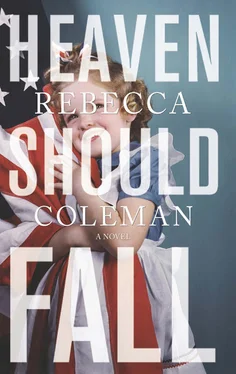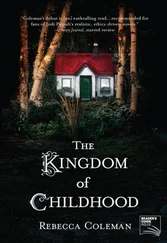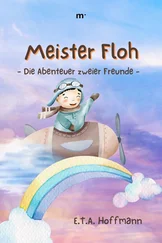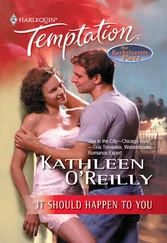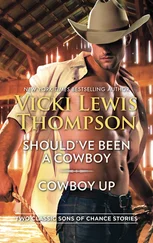Elias pushed the sweat from one eye with the heel of his hand and scanned the perimeter. All at once—it was unmistakable—he saw the figure of a man disappearing into a ditch. A crumpled sheet of plastic lay on the other side of the road: the hallmark of a hidden IED. Without hesitation he swung the gun into position and fired on the man, rattling out a volley of bullets at the ditch. The staff sergeant shouted his orders to him quickly: “Don’t kill.” He was an insurgent, and the captain wanted him brought in for interrogation. “Shoot near him until the Buffalo gets here to neutralize it. Keep him down, but keep him alive.”
“He’s wounded already,” Elias called back, but the answer was the same.
The man’s dark head appeared at the edge of the ditch, and Elias greeted it with a fresh round of rifle fire. Minutes stretched on in silence. The sun drifted lower; the sky was a Sunkist can no longer. Darkness was falling over the desert like a hand descending. Elias fired again, watching the bullets skim the sand like flat stones across the quarry lake.
An hour passed.
Two.
The desert around him was black as blindness. He watched the man now through night-vision goggles, which cast the landscape in Ghostbusters green. Now and then the radio crackled, promising the Buffalo to relieve them in short order; his stomach growled protests that he ignored. The man kept peeking out at intervals, eyes frantic and forlorn, and each time Elias shot over him again. Beneath the starlit sky he felt all the exposure of a stage. Darkness and isolation caused paranoia to rear up inside him, and as time wore on he began to feel jumpy on the trigger, desperate for resolution. Just kill him, Elias came the voice in his mind. End this thing. Kill him and you can get back in the Cougar. Chill out and wait for dinner .
But that wasn’t the order.
The ghoulish palms and scrub trees rustled in the wind. In the strange glow of the goggles the desert offered up the starlight with a sheen that looked like ice. Fatigue and hunger wore at him, and some irritating corner of his brain, exhausted to the point of delirium, had decided that the desert was the quarry lake in winter. Each time the man ducked back into the ditch it seemed as though he were slipping underwater; strange thoughts invaded Elias’s mind, whispers that didn’t follow logically. You can’t shoot here on private property. He would have drowned by now anyway. And then the man’s eyes would glow deerlike above the ridge again and Elias would barrage the sand in reply. Because it was sand, he reminded himself. Even at home, the lake wasn’t there anymore. The county had drained it when the Vogel girl went under. He thought back to the sight of the girl skating on wobbly ankles across the open ice, her arms out at a low angle for balance. To the way his sister’s eyes had followed her all afternoon in the manner one watches a kitchen fly, calculating where it will land.
From the ditch he heard a few broken phrases, weakly shouted. None of it was intelligible. Most likely the man had looked up at the stars, considered his wounds and his odds, and decided to talk, but they couldn’t be sure. They couldn’t leave the vehicle until the ordnance was disposed of, and they couldn’t give the enemy the chance to get away. A hand clawed at the ground above the ditch, then vanished at the clatter of the rifle.
Why didn’t you help her? he had asked Candy late that evening, once it was all over. Only in his mind had he asked the real question: How could you just stand there and do nothing when you know somebody’s dying?
I did, she had replied. I called for help.
The third hour turned over, and at last the Buffalo rumbled into sight. “Good job, soldier,” the staff sergeant said to him as he ambled down the turret and collapsed onto the bench. Somebody handed him a Red Bull, and it kept him awake long enough to get back to the barracks.
The air conditioners greeted him with a blast of wet cool air and all their incessant grinding. He squirted some peanut butter onto a packet of crackers from field rations, smoked his last cigarette of the day and stripped down to his undershirt and boxers. At the urinal he recycled his Red Bull—VALOR HONOR DUTY QUIT WHINING—before falling into his bunk and pressing his face into his pillow. He was still alive.
With his sleep came his dreams. He dreamed of kneeling on the rifle range with his father beside him as he shot and missed, shot and missed. Everybody was watching. With each shot the helplessness doubled in his belly and doubled again, infused every moment with the dread of the inevitable. He dreamed of the man’s dry hand against his skull, pounding his forehead against the stump—not of the pain so much as the humiliation of his sister watching it all and knowing her brother had failed, feeling pity for him. He dreamed of her curling up behind him, offering him her love as he feigned sleep to ease the embarrassment of accepting it.
And when he awoke the next morning, the dream dissolving with the light, he understood the man in the ditch had felt just as he had—helpless, desperate, abandoned—but no, a hundred times worse, and without the glimmer of love to comfort him at the end of what he had endured. Elias pushed this away and forced a new thought, a dependable thought: Today is the day I will die. And it was easy to accept that morning, because he knew, in a small way, he already had.
Cade
The funeral was held on a Sunday, the first day the air smelled like fall instead of summer. An American flag draped the blond-wood casket. I really wasn’t cool with that. As I fell in line behind Dodge and gripped the handle to carry it to the grave, the flag seemed less like an honor than an affront.
I did not look left or right. The mourners were a blur, anyway. I caught a line of mottled green—camouflage uniforms, probably people my brother had served alongside. Somewhere to the right of me, Candy was crying. My parents were the gray heads at the front. It was a kind of relief that my dad was too broken-down to serve as a pallbearer. Not a father’s job to bury his son.
I knew he felt awful. Elias and Candy always swore I was the favorite, but my parents didn’t run like that. They loved Candy for being their daughter and a good Christian. I was the smart one who was going to break out and make it in the world. But Elias, he was what they’d envisioned when they first got married and tried to picture what their son would be like. Happy to be their kid, happy in New Hampshire, aspiring to do okay in school, and serve his country, and come home to marry some local girl and keep the land in the family. Even after he came back as screwed up as he was, they never imagined for a second that he would deviate from the larger plan. Nobody thought he would except maybe Jill, and that was just because Jill didn’t understand what Elias was supposed to do.
I stepped back from the casket, folded my hands and looked at her across the aisle. Her eyes were dry, and she hoisted TJ to her shoulder with a competent shrug that was so like her. I didn’t know how she could be so goddamn stoic. Once she finally got it through her mind that Elias was really dead, she slipped right back into her cool, quiet, unflappable Jill mode. Normally I admired her for being like that, but now it made me uneasy as hell. I couldn’t shake the feeling that behind it all was a big “I told you so.”
Past her shoulder stood a solid, heavily built man in a dark suit, close enough that he could touch her. I glanced at his face and almost reeled back from pure shock. The guy was my uncle Randy. Right away I looked at my father to see if he had noticed, but my dad only stared at the ground, shrunken inside his dark blue suit. Dodge would be the real measure of whether Randy’s presence would be a problem. But Dodge was standing right next to me, and there was no way I could check his expression without being obvious.
Читать дальше
